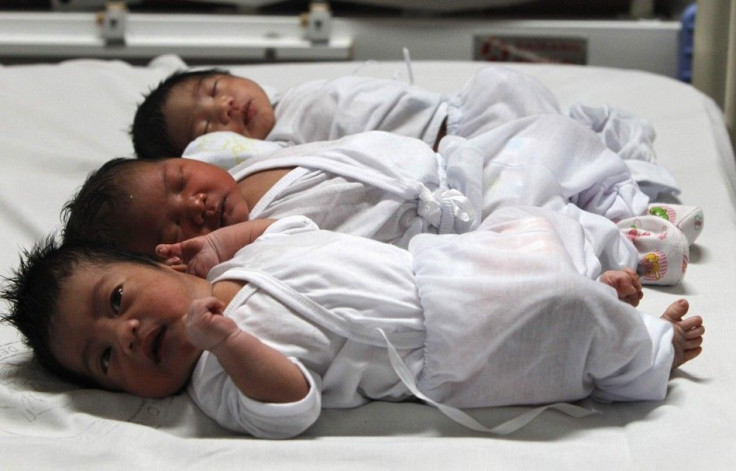Babies' Brains Practise Speech Before They Speak Their First Word[Video]

A new study shows that babies, until they are eight months, can differentiate between speech sounds in languages more than one and that babies' brains practise speech even before they begin to talk. This study, funded by the National Science Foundation of Learning program, was conducted at the University of Washington and was published in the journal Proceedings of the National Academy of Sciences.
Brains of seven and eleven-month-old babies were scanned by a device called magnetoenocephalography, which in a non-invasive manner measures brain activity. The outcome was that the scientists found the speech should in different languages seemed to stimulate an auditory brain region associated with linguistics called superior temporal gyrus, an area associated with speech called Broca's area, the part of the brain which controls movement called the cerebellum and many other areas that are responsible for producing speech.
Professor of speech and hearing at the University of Washington and lead author of the study, Patricia Kuhl, said that until the babies' first birthdays, they don't utter their first words but babble by the time they turn seven months.
She said, "Finding activation in motor areas of the brain when infants are simply listening is significant, because it means the baby brain is engaged in trying to talk back right from the start and suggests that seven-month-olds' brains are already trying to figure out how to make the right movements that will produce words."
Babies were made to listen to sounds in two languages, English and Spanish, and the same pattern of brain activation was observed in all seven-month-old babies. At an early age, it was found that they responded to all speech sounds, irrespective of whether it was a part of their native tongue or no. The older babies showed a harder time trying to figure out which movements are required to produce unfamiliar sound and this also reflects that by the time the infants reach the age of eight months, they focus only on sounds that they hear all the time.
Kuhl explained that when the babies hear us talk, it exercises the action areas of the brain and it prepares them to practise how to speak before they speak a word.
The study shows social implications wherein slow and exaggerated speech like "Hiiii! How are youuuuu?" might prompt infants to try and imitate these utterances by themselves which sound like "Ahhh bah bah baaah." When infants hear exaggerated parentese, their brains may find it easier to model the motor movements necessary to speak, explained Kuhl.




















